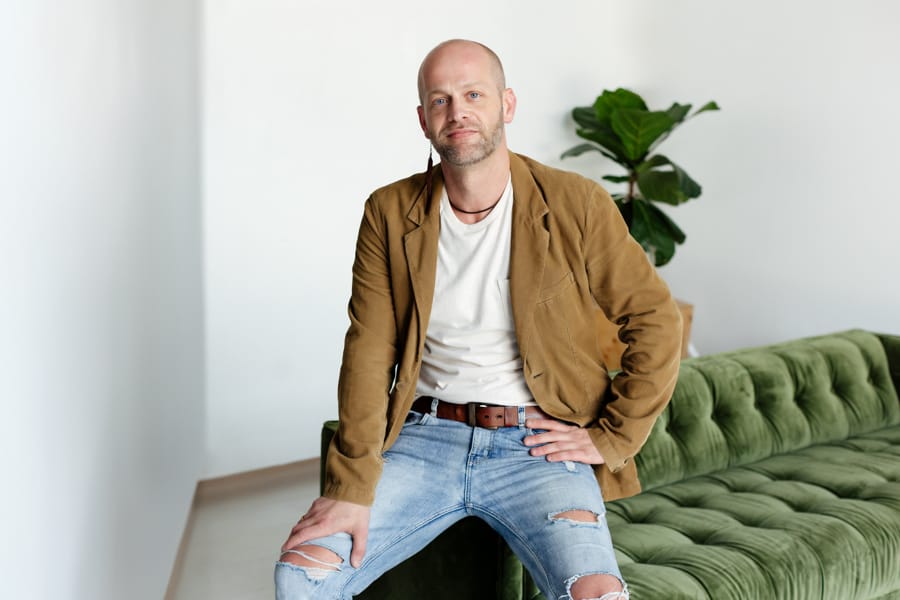You must be ragged to be rich. Your testimony attests your worthiness. Sew purses from sow ears. Turn lemons into lemonade. Make something out of your hardship. Overcome adversity. Etc. etc. Most of these types of phrases stem from a paradigm of adversity.
Undoing decades old damage to our self-schema begins with examining not just the stories we tell about ourselves (and the stories that were told to us about ourselves) but also those that we were told in general. It is from these stories that we began to construct our way of understanding the world.
Whether or not it is fortunate or unfortunate many of these stories are told with the view that a child is a subhuman being with limited understanding who can only receive a watered-down version human stories and often those are reduced by people without any serious effort on their part towards endeavor or are guided the moral war upon the self.
A cease fire which requires we see ourselves accurately and we see our stories accurately without the hidden agendas, lazy shortcuts, and pedantry.
You aren’t broken – neither were your Heroes. There are no underdogs, nor do you need first be nothing to become something. You don’t need a miracle – you don’t need anything external to you for your triumph.
Nowhere is this more apparent to me than in the use of Christian Sunday School Stories. I realize all readers will relate exactly to this, and that is okay. I also realize that by suggesting an examination of these childhood indoctrinations I make room for misunderstanding and offense – that is also okay. I would be happy to work individually with you to develop pensive reactions and other strategies to help heal your religious trauma wounds in formal sessions. Which many of us received our moral instruction from.
All under the premise that we were nothing to begin with . . . that they were broken to begin with. Take the story of David for example. He wasn’t nothing when he confronted Goliath. We have this picture in our mind of a weak little boy with a little wooden Y sling shot that God worked a miracle on in a single moment as he slayed Goliath.
Nothing could be further from the truth. David was not little twerp. He tended his father’s sheep. I’m country and grew up in the Brazos River Valley and had one sheep – being a shepherd for 100’s or 10000s of sheep that is no little job and that in the reality of the Judean wilderness.
A close look at that story shows David already possessing strength and wild careless boldness. He was strong enough to kill a lion with his own hands. He was bold enough to draw out honey from a swarm of bees. The sling shot he used may as well be called a crossbow – the sling shots of that time required a great deal of skill to use and were very deadly.
If anything, his story is a tale of our underestimation of ourselves and not appreciating ability and strength we have cultivated. Instead, the story as given to children applauds and rewards the weak and presents harmless as virtue.
David went out to meet Goliath not because he saw himself as broken or in need of God’s divine miracle and a chance to show everyone how powerful his God was. A last-ditch desperate attempt at becoming something he felt he was entitled to. He didn’t have weakness as a badge of honor. He wasn’t the victim of his brothers who left him to tend the sheep to go to war (he was the only one who could handle the shepherd job). David went out there to face Goliath because he knew he could face Goliath, that God and he had been at work already in developing the ability and the strength to do so.
It wasn’t so much a brave act as it was left to him to do it. Like so many other people who have strength in self embraces. He had already been equipped for such a purpose.
David went out because the waging battle disrupted his ability to tend to his sheep. He went out not to create fortune and fame (chase happiness) he went out to reduce the amount of suffering that he was experiencing in his life – He didn’t go out to be known he went out to preserve his peace.
Rest assured David’s story is anything but one of being nobody to somebody, being anointed a king did not serve him well at all. It put him on the run from Saul’s toxic relationship and imminent death. It put him at odds with is best friend and companion. He ended up just as human as he started.
I think we are led to believe he was humble and that it was a virtue lost on him by success. This message doesn’t serve us it serves the message of the church and the power of the God the church claims to serve. David wasn’t a humble kid, he was braggadocious. He was better than his brothers. – his father sending him to look after their livelihood and the brothers of to a battle they would certainly lose. He was always crafty, disruptive, an imp and a rule breaker. He marched to his own drum. He was human to begin with and human to end with. Nothing different, refined perhaps, but nothing broken just improved because he reduced his suffering. He worked within his life’s reality. Instead of chasing the glory of becoming somebody he worked with what he was being.
I am not sure the humility is much present in the person of David even where it is missing entirely in the David Story. Why does it find itself there? Why do you think many of the stories we are told champion characteristics like meekness, mildness, submission, humility, harmlessness, being downtrodden, sick, and destitute as virtues? It is an important question for us each to answer individually. We model ourselves after the stories that we are told. We model ourselves as the Heroes of the stories we love and want to tell of ourselves.
My hope in reframing the David myth (which you may want to revisit as an adult directly from Samuel or extrabiblical text Josephus) reveals something useful to you. If nothing else the power of revisiting the narratives we hold dear to us, that we constructed our problematic paradigm out of, and that we judge ourselves. Where are you in your journey of self – reconciliation?
A horrible past is not about what you were and the act of being sanctified and saved from it. Being helpless isn’t virtuous. Being broken doesn’t award you any entitlement. A horrible past is strength you use to build a life where you don’t have to suffer the past any longer. You aren’t broken, you aren’t weak, you are more than able. You don’t even need me to tell you that – but hopefully it helps.

